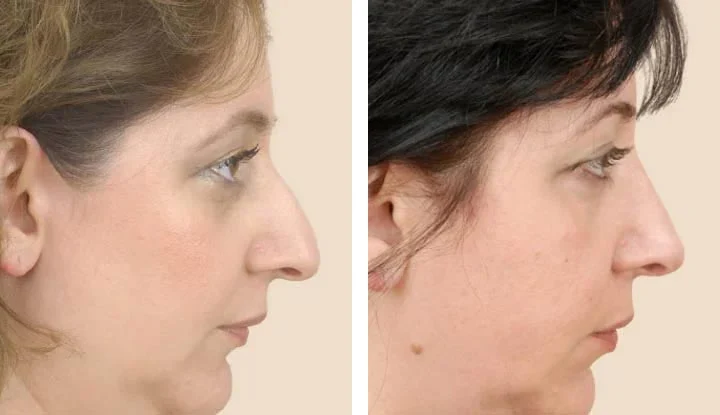Rhinoplasty
Overview
Rhinoplasty, or nose surgery, is a procedure aimed at altering the shape and structure of the nose to enhance its appearance, improve breathing, or address both concerns. At Indotaj Medical Center, we understand that each individual’s needs and goals are unique, and our approach to rhinoplasty reflects a commitment to personalized care.
Rhinoplasty involves the modification of bone, cartilage, skin, or a combination of these elements in the nose. The upper part of the nose consists of bone, while the lower part comprises cartilage. The decision to undergo rhinoplasty is a personal one, and individuals may seek the procedure for cosmetic reasons, functional improvements in breathing, or a combination of both.

Why it's done
Rhinoplasty may be recommended for several reasons, including:
- Rhinoplasty, a specialized surgical procedure at Indotaj Medical Center, is designed to bring about transformative changes in the size, shape, or proportions of the nose. This comprehensive intervention is not only aimed at enhancing aesthetic appeal but also addresses functional concerns arising from various factors.
Risk
Rhinoplasty, like any major treatment, can pose potential risks and complications. Some of these include:
- Bleeding.
- Infection.
- A bad reaction to the anesthesia.
- Problems breathing through the nose.
- Permanent numbness in and around the nose.
- The possibility of an uneven-looking nose.
- Pain, discoloration or swelling that may last.
- Scarring.
- A hole in the wall between the left and right nostrils. This condition is called septal perforation.
- A need for additional surgery.
- Change in the sense of smell.
How do I get ready for Rhinoplasty treatment?
Rhinoplasty involves several steps to ensure a smooth procedure and recovery:
- Your surgeon will delve into your medical history, with a primary focus on understanding your motivations for rhinoplasty and your desired outcomes. Questions about nasal blockages, previous surgeries, and medications will be addressed. Individuals with bleeding disorders, such as hemophilia, will undergo careful consideration, as it may impact their candidacy for rhinoplasty.
- A thorough physical examination will be conducted, assessing both the external and internal aspects of your nose. This examination helps identify the specific changes needed and evaluates factors such as skin thickness and cartilage strength, crucial for anticipating results and addressing potential impacts on breathing.
- Photographs of your nose will be taken from various angles. Advanced computer software may be utilized to simulate potential results, offering a visual preview of the expected changes. These photographs serve as valuable references during surgery and aid in before-and-after comparisons.
- An open and honest discussion about your expectations and goals for the surgery will take place. Your surgeon will explain the possibilities and limitations of rhinoplasty, ensuring a clear understanding of what can be achieved. This dialogue extends to overall facial proportions, addressing concerns like a small chin that may influence the perception of nasal size.
- Detailed information about the rhinoplasty procedure, including its steps and what to expect, will be provided. Any queries or concerns you may have can be addressed at this stage.
- If your rhinoplasty is scheduled as an outpatient procedure, arrangements for someone to drive you home post-surgery will be discussed. After anesthesia, there may be temporary effects on memory, reaction time, and judgment, making it advisable to have a supportive individual stay with you during the initial recovery period.


